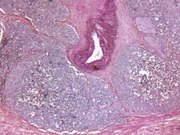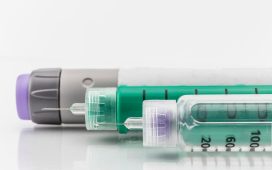Findings for men with intermediate- and high-risk prostate cancer
THURSDAY, May 24, 2018 (HealthDay News) — Prostate-specific antigen (PSA) levels three months after radiotherapy (RT) are strong markers of prostate cancer outcomes for patients with intermediate- and high-risk disease, according to a study published online May 4 in Cancer.
Alex K. Bryant, from University of California at San Diego, and colleagues used Veterans Affairs data to identify 5,783 patients with intermediate-risk or high-risk localized prostate cancer who were diagnosed between 2000 and 2015 and treated with RT and androgen deprivation therapy. Patients were characterized by three-month post-RT PSA values: <0.10 ng/mL, 0.10 to 0.49 ng/mL, and ≥0.50 ng/mL.
The researchers found that a higher three-month PSA level was strongly associated with biochemical progression-free survival (bPFS), prostate cancer-specific survival (PCSS), and overall survival (OS). Greater hazards were noted for patients with a three-month PSA level ≥0.50 ng/mL versus a three-month PSA value <0.10 ng/mL (hazard ratios: bPFS, 5.23; PCSS, 3.97; and OS, 1.50 [P < 0.001 for all]). Greater hazards were also seen for patients with a three-month PSA value of 0.10 to 0.49 ng/mL (hazard ratios: bPFS, 2.41 [P < 0.001]; PCSS, 2.29 [P < 0.001]; and OS, 1.21 [P = 0.003]). When analyzed separately, three-month PSA levels were found to be predictive of OS in the high-risk group (P < 0.001) but not the intermediate-risk group (P = 0.21).
“The three-month PSA measurement may augment clinical decision making and holds promise as a potential surrogate end point in clinical trials,” the authors write.
Copyright © 2018 HealthDay. All rights reserved.








